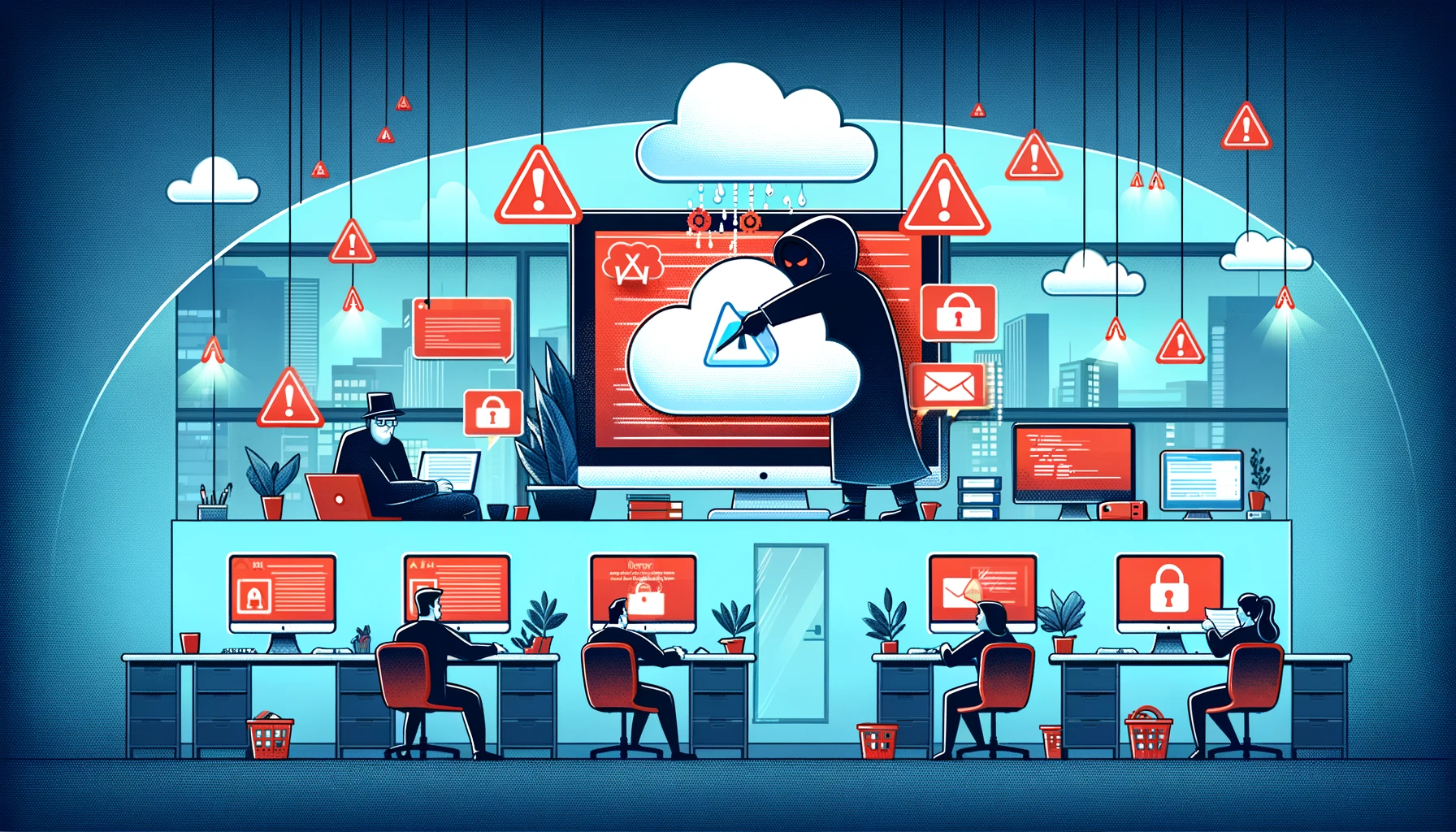Phishing is a scourge for individuals, but it poses an immense danger to businesses. Last year, €39.8 million were stolen through phishing, according to a joint study by the Belgian Centre for Cybersecurity, Febelfin, and the Cybersecurity Coalition. Their conviction: “Phishing is all about the details.” And we couldn’t have said it better ourselves.
What is Phishing?
Phishing is a cybercrime technique designed to trick individuals into divulging sensitive information. This information can include login credentials, banking information, strategic data (company secrets), or personal data. Cybercriminals usually use deceptive messages that appear to come from legitimate sources to entice victims into revealing this information, often via email or SMS.
Belcenter enables businesses (whether SMEs or larger enterprises) to connect and communicate, but our experts are also here to help you build your IT security. Here are their top tips for avoiding phishing in your business.
How Can a Business Fall Victim to Phishing?
- Email Phishing Email phishing is probably the most common form. A phishing email may appear to come from a trusted company or individual. It often contains links or attachments that, once opened, allow attackers to steal sensitive information or install malware.
- Attachments Attachments in emails can contain malware. Once opened, they can infect the victim’s computer and give cybercriminals access to sensitive information or even the entire company network.
- Links (Fraudulent Websites) Links in phishing messages often lead to fake websites that closely resemble legitimate sites. These sites can ask users to enter personal information, which is then captured by cybercriminals.
- SMS Phishing (Smishing) Smishing is a variant of phishing that uses SMS (mobile). Cybercriminals send text messages containing links or instructions to call a phone number. These messages appear to come from trusted entities like banks or government institutions. Other messaging apps are also affected: WhatsApp, Telegram, Signal, Viber, Skype, or Threema.
- Artificial Intelligence (AI) Attacks are becoming more sophisticated. In February 2024, a Hong Kong company fell victim to a “CEO scam” involving a deepfake video conference generated by AI.

The risks associated with phishing are numerous and can have serious consequences for your business. A successful attack can:
- Compromise the company’s reputation
- Cause financial losses due to business continuity disruptions
- Make company data inaccessible (on-site or increasingly often in the Cloud)
- Affect the entire company’s IT network
- Lead to loss of access to essential systems, service interruptions, and disrupted internet connectivity
- Recovery after a phishing attack can be costly and time-consuming, often involving repair costs, data restoration, and security enhancements.

Your Biggest Danger: Human Error
Human error plays a crucial role in the success of phishing attacks. Users often click (sometimes in good faith) on links in phishing emails within seconds. According to Verizon’s DBIR 2024 report, human error is the cause of 68% of breaches. Several factors explain this vulnerability:
- Lack of Awareness Many employees are not trained to recognize the signs of a phishing email. Without adequate awareness, they can easily be deceived by messages that appear authentic.
- Time Pressure Cybercriminals often exploit time pressure to prompt victims to act quickly without thinking. A phishing message may, for instance, claim that an account will be deactivated if immediate action is not taken.
- Excessive Trust Individuals tend to trust messages from seemingly legitimate sources. This trust can be exploited by cybercriminals to obtain sensitive information.

What Can Your Business Do Against Phishing?
Belgian SMEs and larger companies can adopt several strategies to protect themselves against phishing.
- Employee Training and Awareness Training employees to recognize phishing attempts is crucial. Regular training programs and phishing simulations can help maintain a high level of vigilance.
- Use of Security Software Security solutions like antivirus software, spam filters, and intrusion detection systems can help prevent phishing attacks. These tools can block suspicious emails and prevent users from visiting malicious websites.
- Two-Factor Authentication (2FA) Implementing two-factor authentication adds an extra layer of security. Even if cybercriminals obtain a user’s login credentials, they will need the second factor to access protected accounts.
Protecting Emails from Phishing
Email protection is essential to prevent phishing attacks. Here are some measures to adopt:
- Email Filtering Using advanced spam filters can reduce the number of phishing emails that reach employees’ inboxes.
- Sender Verification Encourage employees to verify the sender’s email address before clicking on links or opening attachments. Suspicious addresses or misspelled sender names are often indicators of phishing.
- Reporting Suspicious Emails Implement a system that allows employees to easily report suspicious emails. This can help identify phishing attempts quickly and take measures to neutralise them.
Does your business want to eliminate phishing? Belcenter has designed an economical email security solution (fixed cost per user) called Mail Protection, hosted on its own servers. This protection solution operates in the Cloud and is directly connected to the company’s mail servers, regardless of its size.

Raising Employee Awareness: Why Training is Essential
Training company employees (staff, consultants, partners, visitors) is one of the most effective strategies to combat phishing.
- Reducing Human Error Awareness helps reduce the number of human errors by teaching employees to recognise and avoid phishing attempts.
- Creating a Security Culture Training employees in IT security creates a corporate culture where security is taken seriously. This encourages everyone to adopt secure practices in their daily activities.
- Strengthening the Company’s Defenses Well-trained employees are an additional line of defense against cyberattacks. They can help identify and report potential threats before they cause harm.
Conclusion from Belcenter Security Experts
Our security experts emphasise the following key points:
- Phishing represents a serious threat to Belgian businesses.
- Understanding the methods used by cybercriminals and adopting prevention strategies is crucial.
- Your business can effectively protect itself against this threat through prevention!
- Training and raising employee awareness, combined with robust security measures, are essential to reduce the risks associated with phishing and protect your data, emails, connectivity, computers, servers… and business secrets.





